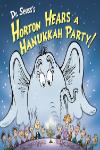Mysticism/Psych Course 6: Defining the European Context
The fourth video of the class* started off with the protestant revolution of the 16 century and focused on (its role in) the emergence of the individual.
-
 Eastern and Western Christianity split in 1054
Eastern and Western Christianity split in 1054 - Western Christianity broke into the Catholic Church and protestants in the 16th century
- Book recommendation: Brad S. Gregory: The Unintended Reformation: How a Religious Revolution Secularized Society . Argues for Protestantism’s impact on the development of the individual. Instead of church mediation focus on individual conscious.
- Schism creates forms of instability. Structure becomes less solid: Mysticism zeros on in these windows of opportunity created by unstable situations. People have to make choice and define identity. Mysticism has answers.
- Catholic church also changes: counter-reformation or revival. Also includes mysticism.
- Three forms of Christianity: eastern form (Russia), Catholic, Protestant
- Literature: revolution of the novel; it has a lot to say about psychology and the individual.
- Literature gives an insight to individual and linked to religion. (e.g. Samuel Richardson’s Pamela)
- Target audience is youth.
- Interdisciplinary course: using different disciplines, psychology, religious studies, literature, sociology, history.
The history part of this lecture was not new for me, but the development of the individual was. I enjoyed being exposed to ideas that are new to me. I have to admit that I tried to read Pamela a few years ago and failed to proceed with it, because the language was too superfluous for me. And the moral issues represented are too alien to my own culture. I had put the Gregory book on my TBR list.
* This blog entry is part of my series on the “Modern European Mysticism and Psychological Thought” course I am taking.














